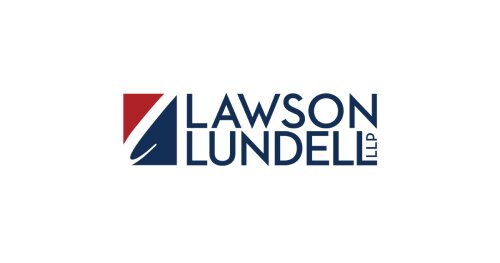Best Employment Rights Lawyers in Yellowknife
Share your needs with us, get contacted by law firms.
Free. Takes 2 min.
List of the best lawyers in Yellowknife, Canada
About Employment Rights Law in Yellowknife, Canada
Employment rights in Yellowknife, Canada, are governed by a combination of federal and territorial legislation. These laws are designed to protect the rights of employees and employers, ensuring fair treatment, safe working conditions, and adherence to agreed terms of employment. Key employment rights include the right to non-discriminatory hiring practices, fair wages, reasonable working hours, safe working environments, and the ability to raise concerns without fear of retaliation. Understanding these rights is crucial for anyone working or employing in Yellowknife.
Why You May Need a Lawyer
There are several scenarios where an individual or employer may require legal assistance regarding employment rights. Common situations include disputes over unfair dismissal, discrimination or harassment in the workplace, non-payment of wages or benefits, breaches of employment contracts, and navigating complex issues such as workplace safety or accommodation needs. A lawyer can provide valuable advice and representation to help resolve these issues effectively, ensuring that rights are protected and that any dispute is handled appropriately.
Local Laws Overview
Employment law in Yellowknife is primarily regulated by the Employment Standards Act and the Human Rights Act of the Northwest Territories, alongside applicable federal laws for certain sectors. The Employment Standards Act outlines minimum standards for wages, hours of work, overtime, vacation entitlements, and other employment conditions. The Human Rights Act prohibits discrimination based on race, gender, disability, and other protected grounds, ensuring equal opportunities in the workplace. Furthermore, specific laws address occupational health and safety, the rights of workers in federally regulated industries, and protections for temporary foreign workers.
Frequently Asked Questions
What are the minimum wage laws in Yellowknife?
The minimum wage in Yellowknife is set by the Government of the Northwest Territories and is subject to periodic review and adjustment. It is essential to check the current rate to ensure compliance.
How do I know if I'm entitled to overtime pay?
Overtime pay is applicable for hours worked beyond the standard full-time schedule set out in the Employment Standards Act. Usually, in Yellowknife, this means hours worked over 8 in a day or 40 in a week, but there are exceptions.
What constitutes wrongful dismissal?
Wrongful dismissal occurs when an employee is terminated without just cause or without reasonable notice as outlined in the employment contract or by law. Legal advice can help determine whether a dismissal was wrongful.
What should I do if I face discrimination at work?
If you face discrimination at work, consider documenting the incidents and reporting it to your employer as a first step. You may also file a complaint with the Northwest Territories Human Rights Commission.
Can my employer change my job duties without my consent?
Changes to job duties should generally align with your employment contract. Significant changes might require your consent and could be grounds for constructive dismissal if implemented unilaterally.
How can temporary foreign workers protect their employment rights?
Temporary foreign workers have the same rights as Canadian workers regarding workplace protections and fair treatment. It's essential to understand these rights and seek help if they are not respected.
What is considered a hostile work environment?
A hostile work environment is one where discriminatory, harassing, or threatening behavior makes it difficult for an employee to perform their job. Legal guidance can help address such situations.
Are employment contracts mandatory?
While not mandatory, a written employment contract clearly outlining the terms of employment is highly recommended for both parties to prevent misunderstandings and disputes.
How can I request accommodations for a disability at work?
You can request accommodations by communicating your needs to your employer. The Human Rights Act obligates employers to provide reasonable accommodations unless undue hardship can be proven.
What are my rights regarding workplace safety?
Employers must provide a safe work environment as per the Northwest Territories' Occupational Health and Safety regulations. You have the right to refuse unsafe work and report hazards without fear of reprisal.
Additional Resources
Those seeking further information on employment rights in Yellowknife may find the following resources helpful:
- Yellowknife Legal Aid Clinic
- Northwest Territories Human Rights Commission
- Employment Standards Office of the Northwest Territories
- Government of Canada Labour Program (for federally regulated employees)
Next Steps
If you need legal assistance regarding employment rights in Yellowknife, start by gathering all relevant documentation such as your employment contract, payslips, correspondence, and any evidence of the issue at hand. Consider reaching out to a local lawyer specializing in employment law or contact the Yellowknife Legal Aid Clinic for initial advice. Additionally, you can file a complaint with the appropriate body, such as the Employment Standards Office or the Human Rights Commission, to seek resolution or mediation in your case.
Lawzana helps you find the best lawyers and law firms in Yellowknife through a curated and pre-screened list of qualified legal professionals. Our platform offers rankings and detailed profiles of attorneys and law firms, allowing you to compare based on practice areas, including Employment Rights, experience, and client feedback.
Each profile includes a description of the firm's areas of practice, client reviews, team members and partners, year of establishment, spoken languages, office locations, contact information, social media presence, and any published articles or resources. Most firms on our platform speak English and are experienced in both local and international legal matters.
Get a quote from top-rated law firms in Yellowknife, Canada — quickly, securely, and without unnecessary hassle.
Disclaimer:
The information provided on this page is for general informational purposes only and does not constitute legal advice. While we strive to ensure the accuracy and relevance of the content, legal information may change over time, and interpretations of the law can vary. You should always consult with a qualified legal professional for advice specific to your situation.
We disclaim all liability for actions taken or not taken based on the content of this page. If you believe any information is incorrect or outdated, please contact us, and we will review and update it where appropriate.









